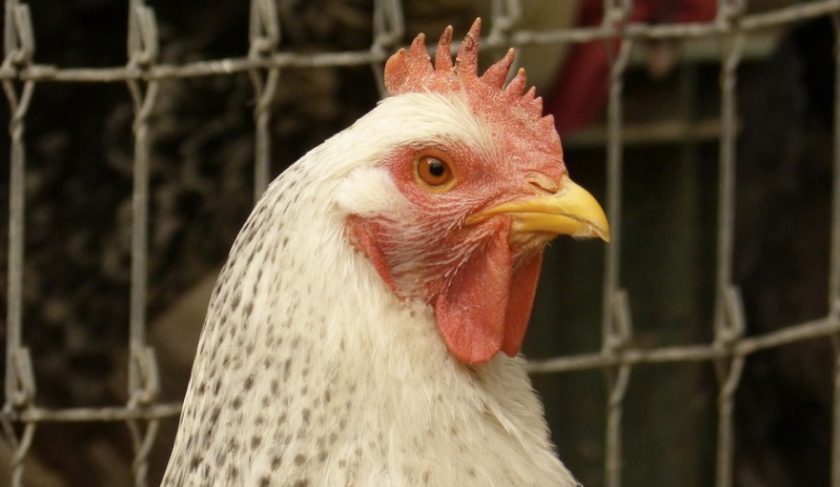Bird flu prevention zone declared across Wales, England and Scotland amid new outbreaks

New restrictions have been announced following an outbreak of bird flu cases.
The new rules will be in force for all bird keepers across Wales, England and Scotland following an increase in cases, the Department for Environment, Food and Rural Affairs (Defra) said.
The presence of highly pathogenic avian influenza H5N1 was confirmed on Sunday by Wales’ interim chief veterinary officer Gavin Watkins in poultry at a site in Anglesey.
All bird keepers have been asked to remain vigilant and follow “stringent biosecurity measures to prevent future outbreaks”, with new rules coming into force from midday today
A total of 152 premises in GB, seven in Wales, have been infected with (HPAI) between October 2021 and September 2022, “making this the largest and most prolonged incursion of this virus.” Lesley Griffiths MS, Minister for Rural Affairs and North Wales, and Trefnydd said.
Recently there has been a marked increase in outbreaks in England with over 35 cases confirmed in kept birds since 1 October.
In a statement, Lesley Griffiths MS said: “The risk of incursion from wild birds has now been raised from ‘medium’ to ‘high’ and the risk of infection to poultry in the UK has been raised from ‘medium’ to ‘high’ where biosecurity is inadequate, and from ‘low’ to ‘medium’ where stringent biosecurity measures are applied. Good biosecurity is essential to keep birds safe from this highly infectious virus.”
“As a preventative measure, in response to the increased risk levels and to mitigate the risk of infection to poultry and other captive birds, I am declaring an all-Wales Avian Influenza Prevention Zone, under Article 6 of the Avian Influenza and Influenza of Avian Origin in Mammals (Wales) (No. 2) Order 2006. The Prevention Zone will apply from 12:00 on 17 October 2022.”
“These requirements apply to all kept birds, including small flocks with fewer than 50 birds.”
The Prevention Zone will require all keepers of poultry and other captive birds, irrespective of how they are kept, to take appropriate and practicable steps, including:
• Keeping kept birds off land that is known to be, or at high risk of being, frequented by wild waterfowl, or contaminated by their droppings or feathers
• Ensure the areas where birds are kept are unattractive to wild birds, especially waterfowl, for example, by netting ponds and surrounding areas and by removing wild bird food sources;
• Feed and water your birds in enclosed areas to discourage wild birds;
• Minimise movement of people in and out of bird enclosures;
• Clean and disinfect footwear, use foot dips before entering poultry enclosures, and keep areas where birds live clean and tidy;
• Ensure that all bedding, equipment, clothing and anything else that enters the areas where birds are kept are free of direct or indirect contamination with HPAI, which is mainly spread through bird droppings.
• Keep domestic ducks and geese separate from other poultry.
Keepers with more than 500 birds will also be required to take extra biosecurity measures, including restricting access to non-essential people, changing clothing and footwear before entering bird enclosures and cleaning and disinfecting vehicles.
Lesley Griffiths MS said: “This Avian Influenza Prevention Zone will remain in place until a reduction in risk levels indicates it is no longer required. The control measures within the Zone will be kept under regular review and may change in response to development of the HPAI epidemic.”
“I consider the measures in this Prevention Zone to be proportionate to the risk level we face. It is essential we take proactive steps to protect our poultry, other kept birds, public health, our food supply chains and the well-being of bird keepers in Wales.”
“We all have a responsibility to prevent disease and protect the health of our national flock in Wales. All keepers of poultry and other captive birds must comply with the requirements of the Avian Influenza Prevention Zone. Keepers must remain vigilant for signs of disease. Avian influenza is a notifiable disease. Any suspicion should be reported immediately to the Animal and Plant Health Agency (APHA).”
“Housing of birds is not currently being made mandatory under the requirements of this Prevention Zone. Stringent biosecurity measures are our best defence against all animal diseases, and this is an opportune moment for everyone to review biosecurity practices and consider where more can be done. The conditions in the Prevention Zone are a minimum all keepers must comply with as we face this disease risk. Individual bird keepers may decide housing their flocks at this stage is necessary to protect them, and mandatory housing has not been ruled out as an additional measure which may be introduced by Welsh Government.”
“I continue to strongly encourage all poultry keepers, including those with fewer than 50 birds, to register their birds with APHA. This a legal requirement for keepers with more than 50 birds and highly recommended for those with fewer. It ensures they can be contacted immediately, via email or text update, in an avian disease outbreak, enabling them to protect their flock at the earliest opportunity.”
Spotted something? Got a story? Email: [email protected]
Latest News
